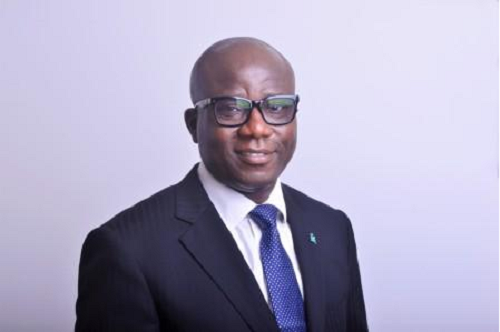
IFRS 9 won’t affect our operations — Stanchart
The Head of Retail Banking at Standard Chartered Bank Limited, Mr Henry Baye has said the implementation of the International Financial Reporting Standards (IFRS 9) by the Bank of Ghana (BoG) will not have any significant impact on the operations and performance of the bank.
As a bank, he said its strategy had always been around capital accumulation and was therefore ready and well positioned to take on the new reporting standards.
Mr Baye said this when the bank took its turn at the Ghana Stock Exchange’s facts behind the figures.
The BoG has stressed that it will enforce the implementation of the IFRS 9, which is a tool which requires all financial institutions to comply with a common financial reporting standard which is aimed at reducing their exposures to Non-Performing Loans (NPLs).
The move also comes at a time that the central bank has also indicated its readiness to implement Basel II& III, which are new banking frameworks and has also reviewed upwards the minimum capital for commercial banks in the country from the previous GH¢120 million to GH¢400 million, Mr Baye, however indicated that Stanchart was ready and had made provisions to meet these new requirements.
“The IFRS 9 provisions have got to do with the management of capital. It’s about how much capital we need to provide for the risks that we take on our books and the whole idea is to ensure that banks are well capitalized,” he stated.
“It’s a new methodology so there will be some impact at the initial stages but we have already made provision for that. Our strategy has always been around what we call capital accretion so we are already well positioned to be able to take on the new methodology without it having extra impact on the performance of the bank,” he added.
New capital requirement
The Chief Finance Officer of the bank, Mr Kweku Nimfah-Essuman also pointed out that the bank was working to become "one of the first banks to recapitalise" to GH¢400 million after shareholders gave it the nod to move funds from its surplus income account to stated capital.
He said although the movement of the funds from the surplus income account into the stated capital account would follow a procedure, the bank would ensure that the process is expedited to ensure that it becomes one of the first banks to recapitalise.
The approval, given at the bank’s annual general meeting last Wednesday, makes it possible for StanChart to move some GH¢305 million (including withholding tax) to the stated capital account, which currently has GH¢122 million.
The movement is to ensure that the bank meets Bank of Ghana’s capital demand, due to end in December 2018.
The bank however assured that in spite of the time the processes on the capital movement are completed, StanChart will still meet the recapitalisation directive.
2017 performance
Touching on the bank’s 2017 performance, Mr Kweku Nimfah-Essuman said the bank made significant progress in 2017 against the backdrop of strong headwinds experienced in the year under review.
He said its operating income increased by nine per cent to GH¢676.8 million from GH¢620.9million
Operating expense also went up by 26 per cent to GH¢244.9 million compared to prior year of GH¢194.1million.
Impairment charge was 88 per cent better at GH¢9.5million year to date.
The cumulative effect of the above resulted in profit before tax of GH¢422.3 million, representing 22 per cent growth over the previous year.
Average return on equity was 32 per cent compared to prior year of 34 per cent
Earnings per share increased by 27 per cent from GH¢1.92 to GH¢2.44.